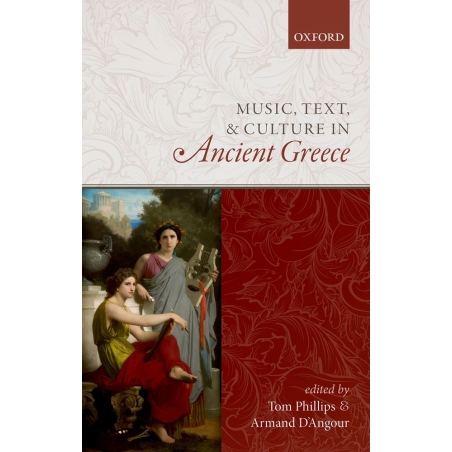What difference does music make to performance poetry, and how did the ancients understand this relationship? This volume explores the interaction of music and language in ancient Greek poetry, arguing that music crucially informs the ways in which these texts create meaning and exploring its place in contemporary critical writings.
CONTENTS
Frontmatter
List of Figures
List of Abbreviations
List of Contributors
0 Tom Phillips: Introduction: Music, Text, and Culture
I: Interpretation
1 John C. Franklin: Epicentric Tonality and the Greek Lyric Tradition
2 Armand D'Angour: The Musical Setting of Ancient Greek Texts
3 Tom Phillips: Words and the Musician: Pindar's Dactylo-Epitrites
4 Oliver Thomas: Music in Euripides' Medea
5 Stelios Psaroudakes: Mesomedes' Hymn to the Sun: The Precipitation of Logos in the Melos
II: Theory, Reception, Contexts
6 Naomi Weiss: Hearing the Syrinx in Euripidean Tragedy
7 Anastasia-Erasmia Peponi: Lyric Atmospheres: Plato and Mimetic Evanescence
8 Pierre Destree: Aristotle on Music for Leisure
9 James I. Porter: Sounds You Cannot Hear: Cicero and the Tradition of Sublime Criticism
10 Andrew Barker: Disreputable Music: A Performance, a Defence, and their Intertextual and Intermedial Resonances (Plutarch Quaest. conv. 704c4-705b6)
Endmatter
Bibliography
Index


